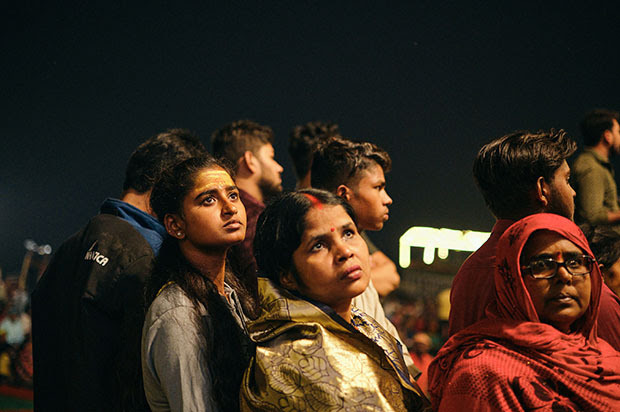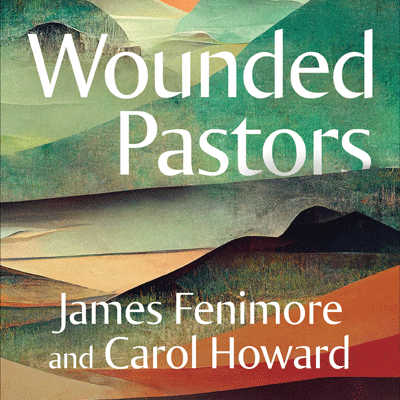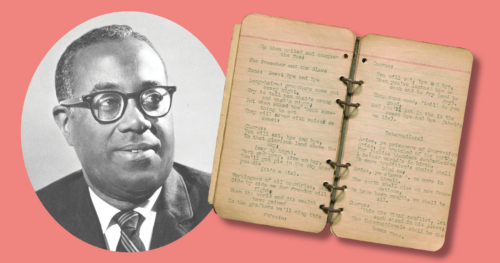Funds will help NWCs expand their reach
January 31, 2024

Light 4 the Darkness Fellowship offers in-person and hybrid support
groups grounded in gardening, the arts and mental health resilience.
(Contributed photo)
Technology has the power to connect people, but only when it is working and is scaled for growing with a community.
Recognizing how important technology is to spiritual leaders of communities, the Presbyterian Foundation has expanded its technology grant awards to include leaders of new worshiping communities this year. “The Presbyterian Foundation first offered this grant to pastors of congregations last year and expanded it to serve the leaders of new worshiping communities,” said the Rev. Nikki Collins, director of 1001 New Worshiping Communities, adding that “1001 and the Presbyterian Mission Agency are grateful for the opportunity to partner with the Presbyterian Foundation to extend these Lilly Foundation Inc. funds for new worshiping communities.” Collins also said that together over $150,000 was awarded to more than 40 new worshiping communities with particular technology needs. The awards of $5,000 or less will help them grow their communications channels and enhance their worship services and hybrid groups.
 “The grant applications we received last year affirmed the need for technology grants for pastoral leaders serving small congregations, particularly churches of color, which have less resources available to them,” said the Rev. Dr. David Loleng, director of Church Financial Literacy and Leadership at the Presbyterian Foundation. “Just a few thousand dollars makes a world of difference to these pastoral leaders and the congregations they serve. The Presbyterian Foundation in partnership with the Presbyterian Mission Agency’s 1001 NWC program is honored to include the leaders of new worshiping communities this year as it was a wonderful way to extend this benefit and work together with our colleagues across the PC(USA).”
“The grant applications we received last year affirmed the need for technology grants for pastoral leaders serving small congregations, particularly churches of color, which have less resources available to them,” said the Rev. Dr. David Loleng, director of Church Financial Literacy and Leadership at the Presbyterian Foundation. “Just a few thousand dollars makes a world of difference to these pastoral leaders and the congregations they serve. The Presbyterian Foundation in partnership with the Presbyterian Mission Agency’s 1001 NWC program is honored to include the leaders of new worshiping communities this year as it was a wonderful way to extend this benefit and work together with our colleagues across the PC(USA).”
Grant applications were received Sept. 21 to Oct. 21, and awards were announced on Nov. 13.
These grants are important because ministry in the 21st century depends on technological savvy and tools. Most NWCs operate with limited funding, and leaders often supply their own laptops and other tech equipment for the purposes of ministry. But beyond the purchase of a laptop on which a leader can shape a worship service or send emails, many of these grants will bring technology tools to the communities they serve through internet access for after-school programs sponsored by the NWC, equipment for livestreaming worship and A/V equipment for growing gatherings.

Light 4 the Darkness Fellowship has welcomed more than 300
people from around the world to address mental health
challenges and the effects of isolation. (Contributed photograph)
“Our Wi-Fi is awful; we run everything off individual hotspots,” team members from Ebenezer: The People’s Cathedral in San Diego wrote on their grant application. The church, which seeks to help “the immigrant, under-resourced and often-exploited community come to life” in their neighborhood of Linda Vista, will use the funds to install a fiber network and update camera and AV equipment that is over 10 years old for their worship services.
Intercultural Mosaics in Davis, California, has a vision “to rejuvenate the faith for Millennials and Gen Zers beyond traditional church structures.” During the pandemic, the ministry engaged over 800 individuals across 25 ethnicities over Facebook and Zoom. Its website has over 40,000 subscribers but is quickly becoming outdated. According to its application, their limited social media reach and inadequate hybrid event equipment have become a hindrance to the global vision they have for evangelism and discipleship. The $5,000 grant will help the strategic vision to integrate better hybrid events, social media marketing and an updated website into a more seamless platform that attracts and sustains spiritual seekers.
Light 4 the Darkness Fellowship (L4TD) is also a multicultural ministry that “includes 25% African Americans, 12% Asian Americans, 5% Hispanics, 50% Caucasians and 8% who chose not to identify.” L4TD Fellowship has welcomed more than 300 people around the world through Zoom support groups and a focus on healing post-church and post-Christian trauma as it addresses the mental health challenges and the effects of isolation.
The grant funds will improve the technology platforms used by L4TD facilitators who lead their worshipful support groups and one-on-one sessions so that interruptions in sound or image quality don’t detract from the healing connections being forged.
Support and togetherness were what the Presbyterian Mission Agency and the Presbyterian Foundation hoped to convey in reaching these communities still in the innovating stages of their development as ministries.
“Working together reminds us all that we are not in this ministry alone, that there are resources beyond ourselves, and that sharing generously and faithfully shows the world the depth and breadth of God’s love,” said Collins.
Beth Waltemath, Communications Strategist, Presbyterian Mission Agency
Today’s Focus: Presbyterian Foundation awards grants to 1001 New Worshiping Communities for technology upgrades
Let us join in prayer for:
PC(USA) Agencies’ Staff
Zenia Baker, Administrative I, Operations, Presbyterian Foundation
Amantha Barbee, Mission Engagement Advisor At Large, Administrative Services Group (A Corp)
Let us pray
God in Heaven, we thank you for your compassionate presence in our lives and ask that you help us to be a compassionate presence to the people around us, regardless of whom we may encounter. In Jesus’ name we pray. Amen.









 Ahead of the publication of their Westminster John Knox Press book “
Ahead of the publication of their Westminster John Knox Press book “

